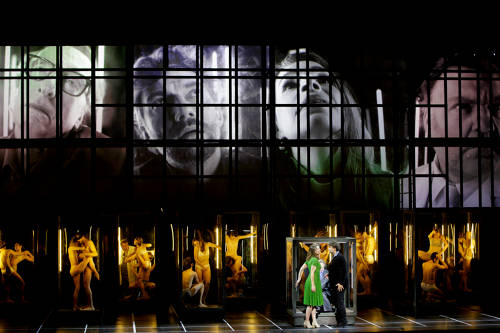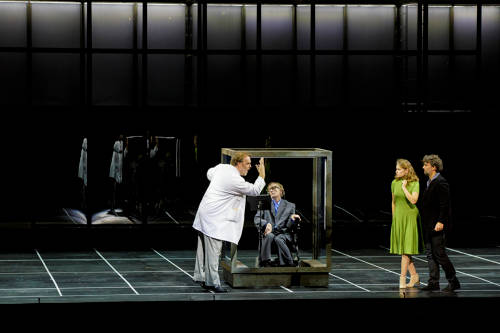By Frank Cadenhead: The article in today’s Le Figaro could not conceal the anger and frustration. The title “Will the Opéra de Paris Have a Program in 2021?” points to the failure of the opera administration, the Ministry of Culture and the French President Macron himself to finally name a successor to Stephane Lissner for the 2021-22 season. Why this process was not planned a year or two earlier suggests a failure of the current board and management and the weeks that are floating by waiting for the President of the Republic to name a name is only a small number compared with the total time wasted.
The short list, published April 19, is composed of Dominique Meyer, now heading the Vienna State Opera, Olivier Mantei, the director of the Opéra-Comique, Peter de Caluwe, currently in charge at La Monnaie in Brussels and Alexander Neef, heading Toronto’s opera. Macron did not delegate his responsibility in naming the opera head to the Minister of Culture, Franck Riester, so, as weeks pass, the silence continues. While Macron is dealing with a declining Yellow Vest protest and the fire at Notre Dame, other things do not get his attention.
Since opera companies plan several years in advance, this failure to plan will deal a serious blow to the incoming steward. The article notes that the Met and Madrid’s Teatro Real are now planning for 2023-24 and London, Vienna and Munich already have the productions and co-productions for 2022-23. For singers, the article notes, we are not just talking about firming up dates for Jonas Kaufmann or Anna Netrebko. Michel Franck, director of the Théàtre des Champs-Élysées is quoted in the article as saying “I contacted Stéphane Degout and Stanislas de Barbeyrac for a production in 2022 and I am not sure to have either.” The article notes that major opera directors, like Tchernaikov or Warlikowski, who only work in opera, are booked until 2023. They can only do three or four productions a year and ask for six to eight weeks of rehearsals.
One of the names which could have been on the list of candidates is Serge Dorny, heading the Opéra de Lyon. Over the years he took a regional opera company to the top ranks in Europe. The magazine Opernwelt named Lyon the Opera House of the Year in 2017, only the second time that an opera house outside Germany received that accolade. Dorny, however, was snatched up by the Bavarian State Opera for the 2021-22 season and beyond and has been at work in Munich for over a year planning future seasons.
The new director would certainly have to plan creatively and, the article suggests, the Paris Opéra will need to be “reinvented.” The new director will also need to name a successor to the highly regarded music director Philippe Jordan, among many other tasks made much harder by the delay.

